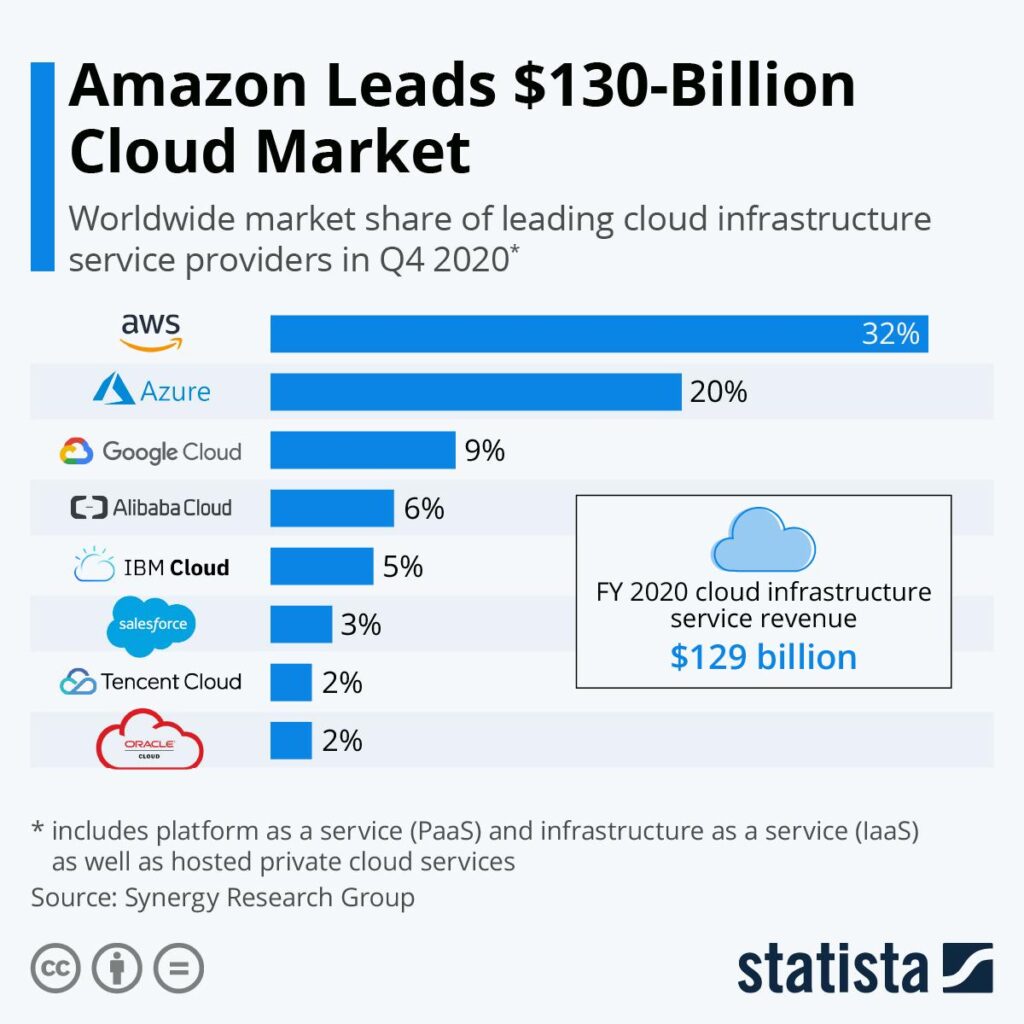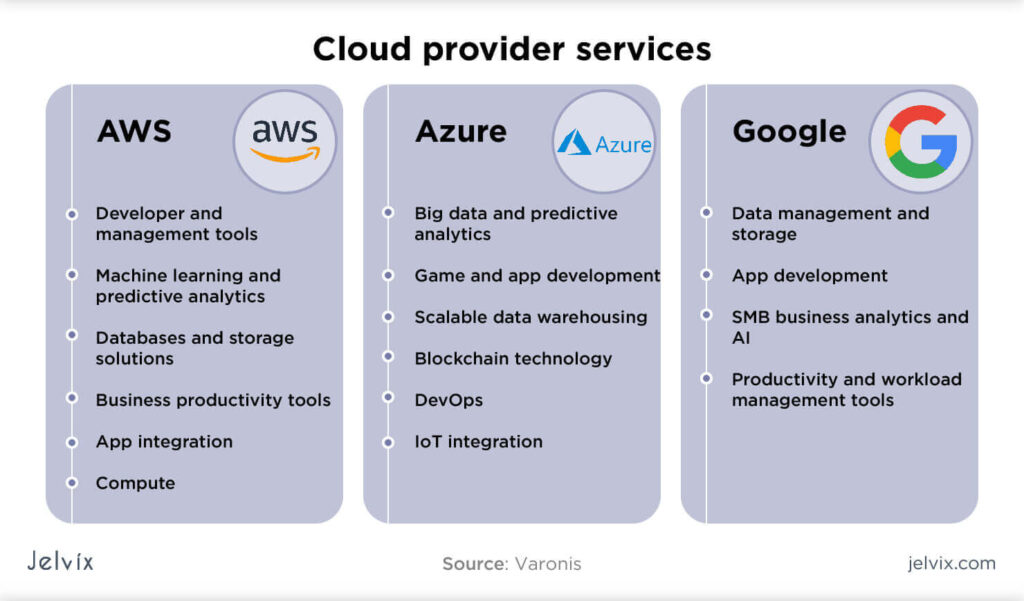When it comes to choosing a cloud provider, it feels like the options are endless. There’s AWS, Azure, and of course, GCP. Each provider claims to offer the best features and services, making it difficult for us to decide which one is the right choice for our specific needs. In this article, we will explore the key factors to consider when comparing GCP with other cloud providers, helping you make an informed decision and find the perfect fit for your business.

Understanding Cloud Computing
Cloud computing is a technology that allows us to access a wide range of computing resources, including servers, storage, databases, networks, and software applications, over the internet, without the need for physical infrastructure. In other words, it enables us to use and manage these resources remotely, on-demand, and with flexibility. Cloud computing has become increasingly popular in recent years, as it offers numerous advantages over traditional on-premises infrastructure.
Definition of Cloud Computing
Cloud computing can be defined as the delivery of computing resources and services, such as servers, storage, databases, analytics, and software applications, over the internet. These resources are hosted and managed by cloud providers, who are responsible for maintaining the infrastructure and ensuring its availability and scalability. Users can access these resources from anywhere, at any time, using a variety of devices, as long as they have an internet connection.
Advantages of Cloud Computing
There are several advantages to using cloud computing:
-
Scalability: Cloud computing allows us to easily scale our resources up or down based on our needs. We can quickly add or remove servers, storage, or users without the need to invest in additional physical infrastructure.
-
Cost-effectiveness: By using cloud computing, we can avoid the high upfront costs associated with purchasing and maintaining physical infrastructure. Instead, we can pay for the resources we actually use on a pay-as-you-go basis, which can result in significant cost savings.
-
Flexibility: Cloud computing offers us the flexibility to access our resources from anywhere, using any device. This flexibility enables remote work, collaboration, and the ability to respond to changing business needs in a timely manner.
-
Reliability and availability: Cloud providers typically have redundant infrastructure and data centers, ensuring high reliability and availability. This means that our applications and data are protected from hardware failures and other disruptions, resulting in less downtime and improved business continuity.
-
Security: Cloud providers often have robust security measures in place to protect our data. They invest heavily in security tools, technologies, and practices to safeguard our information from potential threats.
Different Types of Cloud Providers
There are various types of cloud providers available in the market, offering different levels of services and capabilities. The three main types are:
-
Infrastructure as a Service (IaaS): IaaS providers offer virtualized computing resources like virtual machines, storage, and networks. Users have control over the operating systems, applications, and databases they choose to deploy on the infrastructure.
-
Platform as a Service (PaaS): PaaS providers offer a platform with pre-configured computing and development tools, allowing users to develop, test, and deploy applications without worrying about the underlying infrastructure.
-
Software as a Service (SaaS): SaaS providers offer ready-to-use software applications that can be accessed over the internet, eliminating the need for installation and maintenance. Users can focus on using the software rather than managing the infrastructure or performing updates.

Introducing Google Cloud Platform (GCP)
Google Cloud Platform (GCP) is one of the leading cloud providers, offering a comprehensive suite of cloud computing services and products. GCP provides the infrastructure, platform, and software necessary to build, deploy, and scale applications and services. Let’s take a closer look at the overview, key features, and benefits of choosing GCP.
Overview of GCP
GCP provides a wide range of services that cater to different business needs. These services can be broadly categorized into several areas:
-
Compute: GCP offers virtual machines (Google Compute Engine), managed Kubernetes service (Google Kubernetes Engine), and serverless computing platform (Google Cloud Functions). These services provide the necessary infrastructure to run applications and workloads.
-
Storage and Databases: GCP provides scalable storage solutions such as Google Cloud Storage, Google Cloud SQL for managed relational databases, Google Cloud Firestore for NoSQL databases, and Google Cloud Bigtable for big data workloads.
-
Networking: GCP offers a powerful and secure global network, allowing users to establish virtual private clouds (VPCs), load balancers, and virtual private network (VPN) connections.
-
Big Data and Analytics: GCP provides a suite of tools for big data processing, including Google BigQuery for data warehousing, Google Cloud Dataflow for stream and batch processing, and Google Cloud Pub/Sub for real-time messaging.
-
Artificial Intelligence and Machine Learning: GCP offers various AI and machine learning services, such as Google Cloud Vision for image recognition, Google Cloud Natural Language for text analysis, and Google Cloud AutoML for custom model creation.
Key Features and Services of GCP
GCP stands out with its unique features and services that differentiate it from other cloud providers:
-
Global Infrastructure: GCP has a vast global network of data centers, allowing users to deploy their applications and services closer to their target audience, resulting in lower latency and improved performance.
-
Google’s Expertise in Data and Analytics: With Google’s background in data and analytics, GCP provides robust tools and services for processing, analyzing, and deriving insights from large datasets.
-
Machine Learning and AI Capabilities: GCP offers a range of AI and machine learning services, empowering users to incorporate advanced technologies into their applications and workflows with relative ease.
-
Containerization and Orchestration: GCP’s managed Kubernetes service allows users to deploy and manage containerized applications at scale, enabling efficient deployment and orchestration of microservices.
-
Serverless Computing: GCP’s serverless computing platform, Google Cloud Functions, enables developers to build and deploy applications without worrying about infrastructure management, as the platform automatically scales and manages the required resources.
Benefits of Choosing GCP
Choosing GCP as a cloud provider offers several benefits for businesses:
-
Reliability and Performance: GCP’s global infrastructure ensures high availability, scalability, and low latency, resulting in reliable and performant applications and services.
-
Cutting-edge Technologies: GCP’s focus on innovation and differentiation allows businesses to leverage the latest and most advanced technologies, such as machine learning and AI, to gain a competitive advantage.
-
Seamless Integration with Google Services: GCP integrates seamlessly with other Google services, such as Google Workspace, Google Analytics, and Google Drive, enabling users to leverage a unified ecosystem.
-
Strong Security and Compliance: GCP follows strict security and compliance measures to protect customer data. It is certified and compliant with various industry standards and regulations, ensuring data privacy and security.
-
Cost-effectiveness: GCP offers competitive pricing models, including pay-as-you-go and sustained use discounts, allowing businesses to optimize their costs and only pay for the resources they consume.
Next, we will compare GCP with other major cloud providers, namely Amazon Web Services (AWS), Microsoft Azure, IBM Cloud, Oracle Cloud, and Alibaba Cloud, to help you make an informed decision. We will consider the services offered, pricing, performance, and other factors that are crucial for selecting the right cloud provider for your specific needs.
